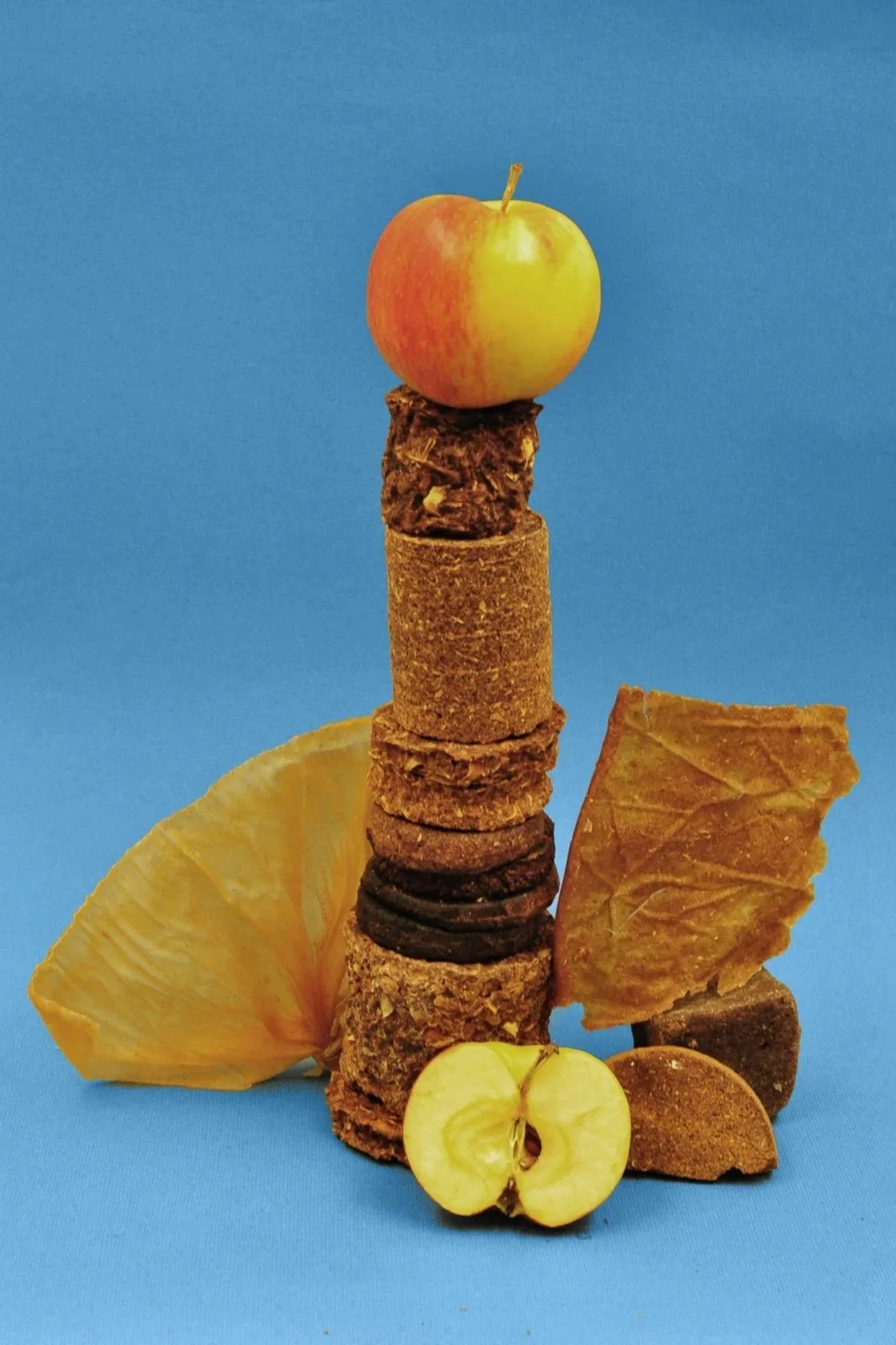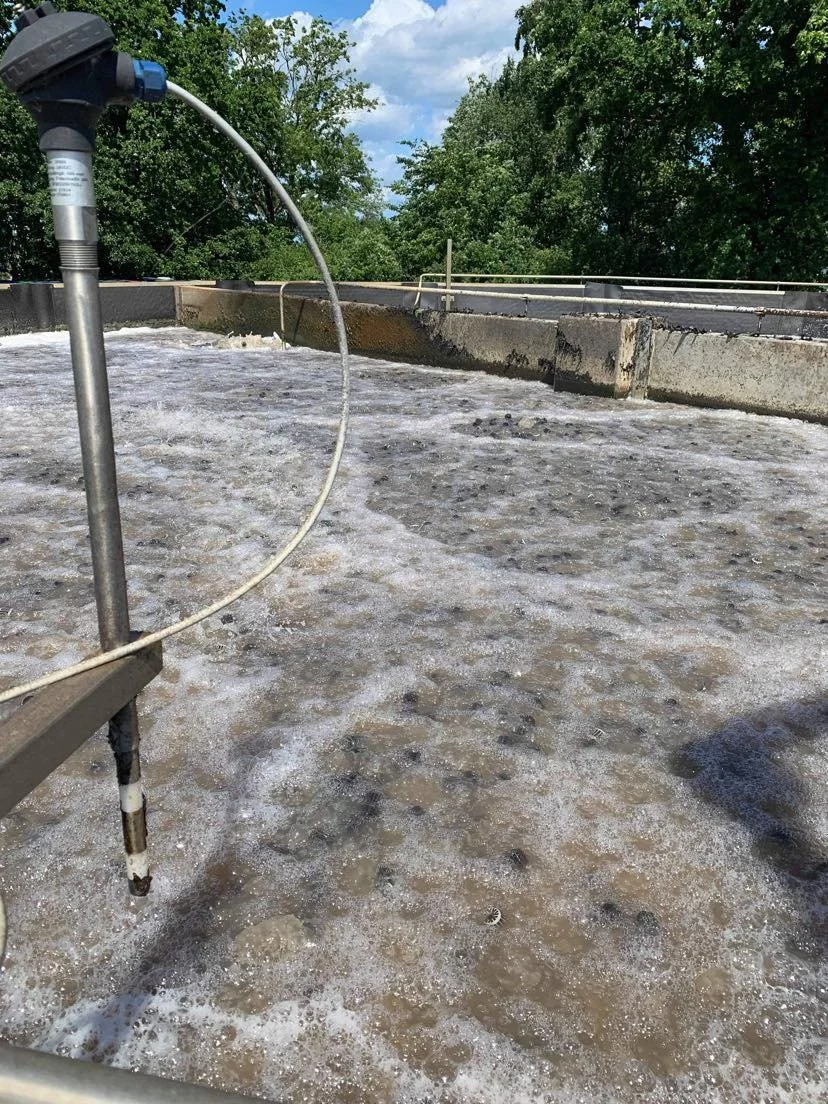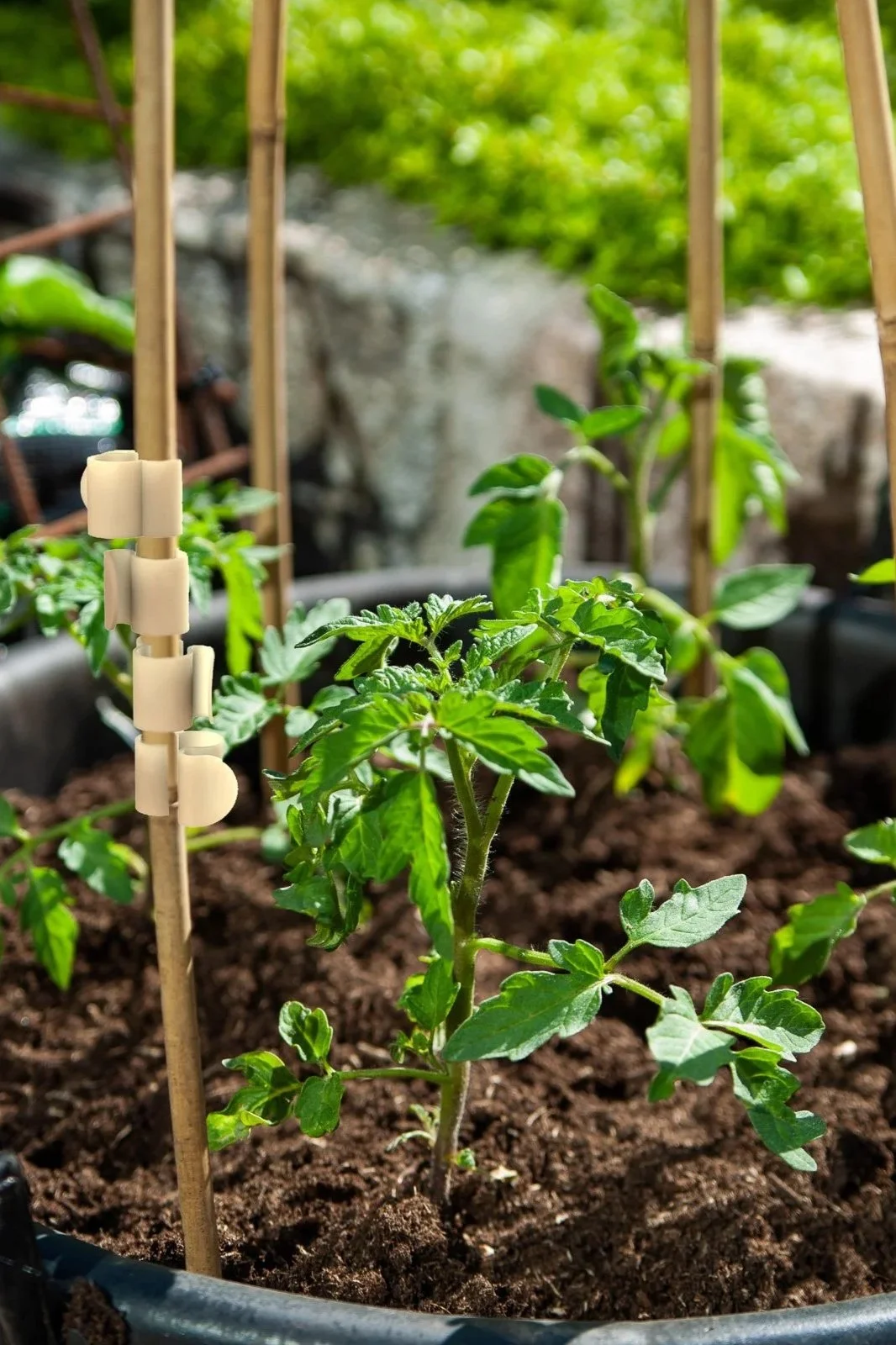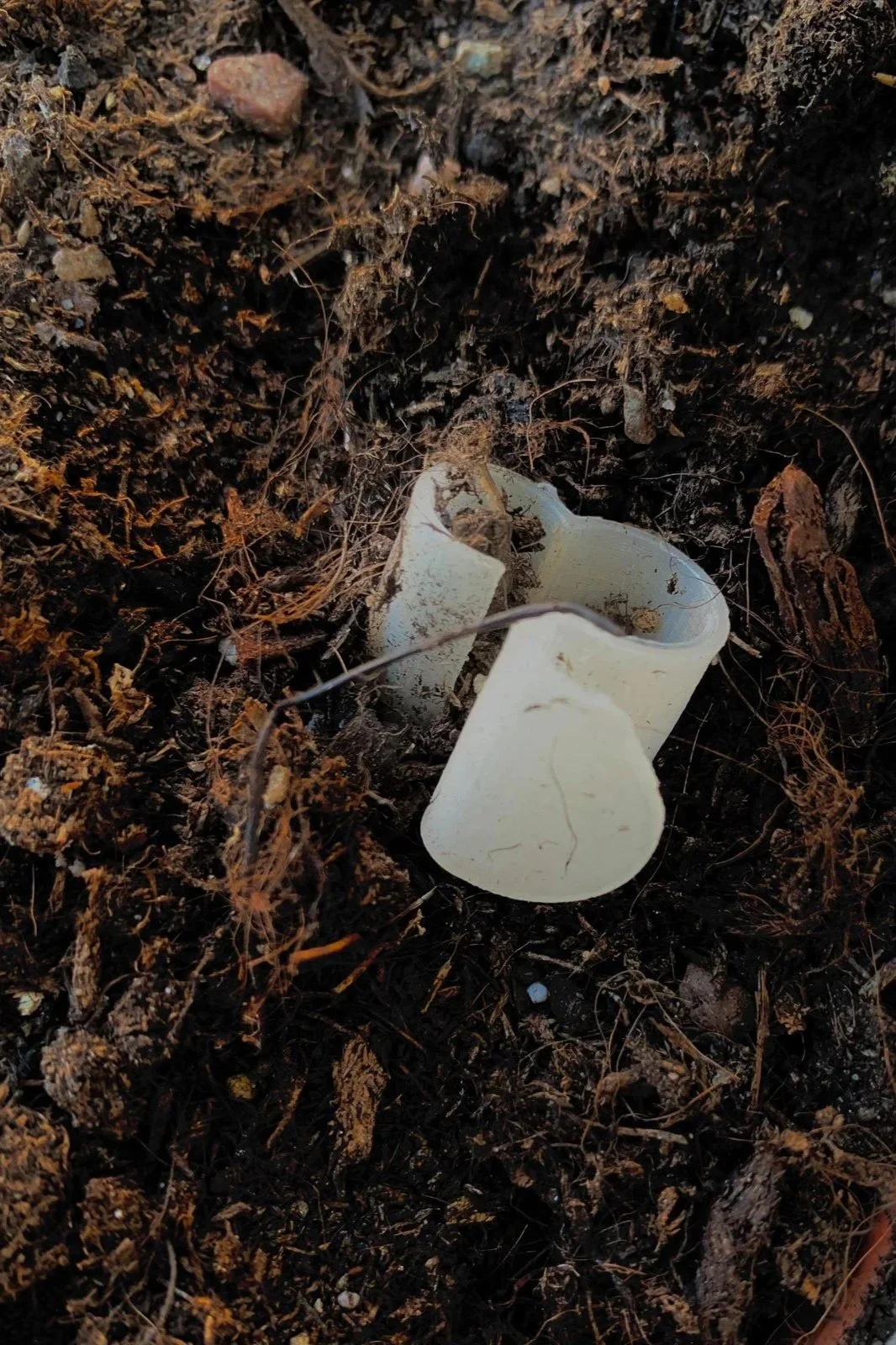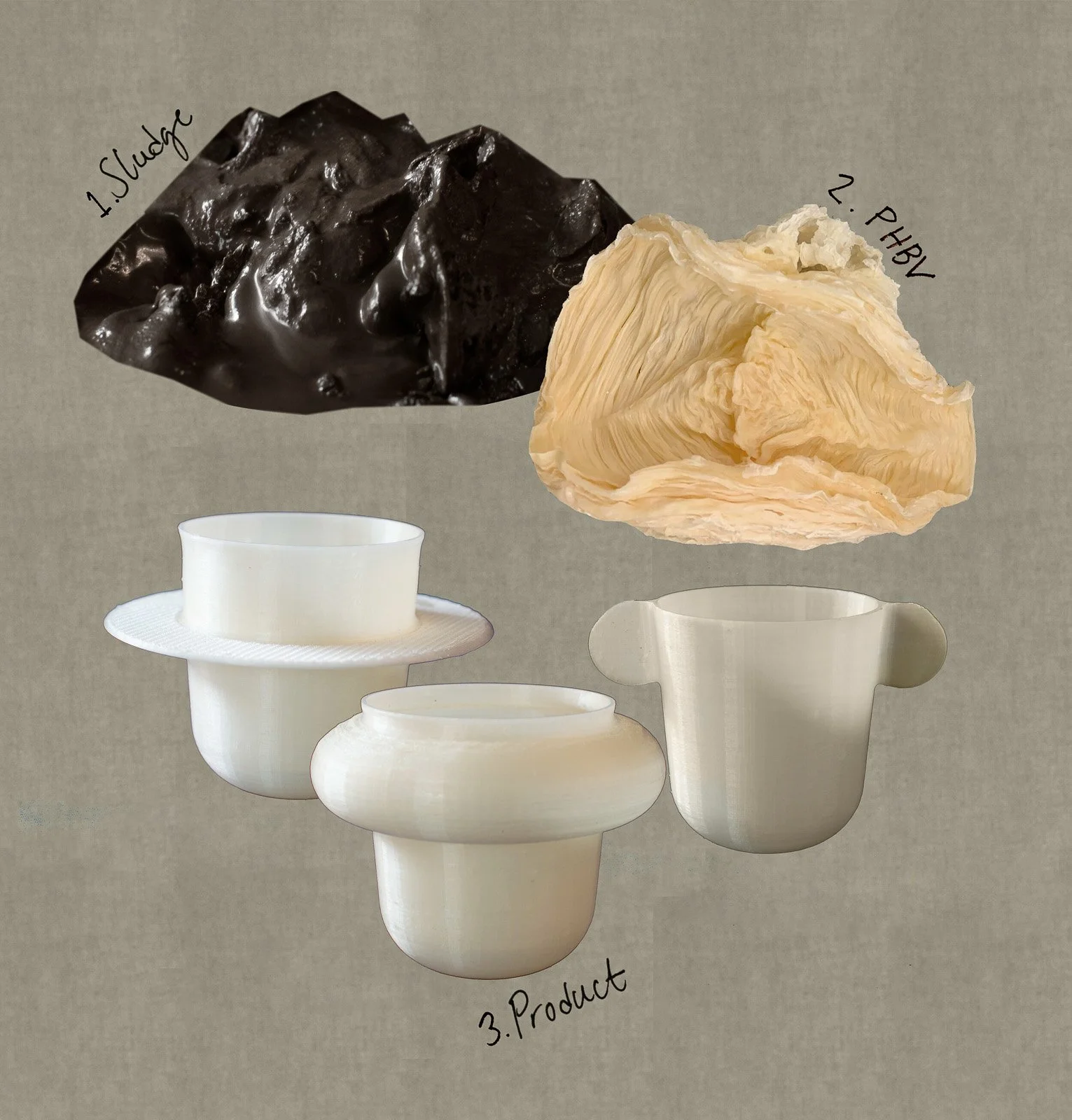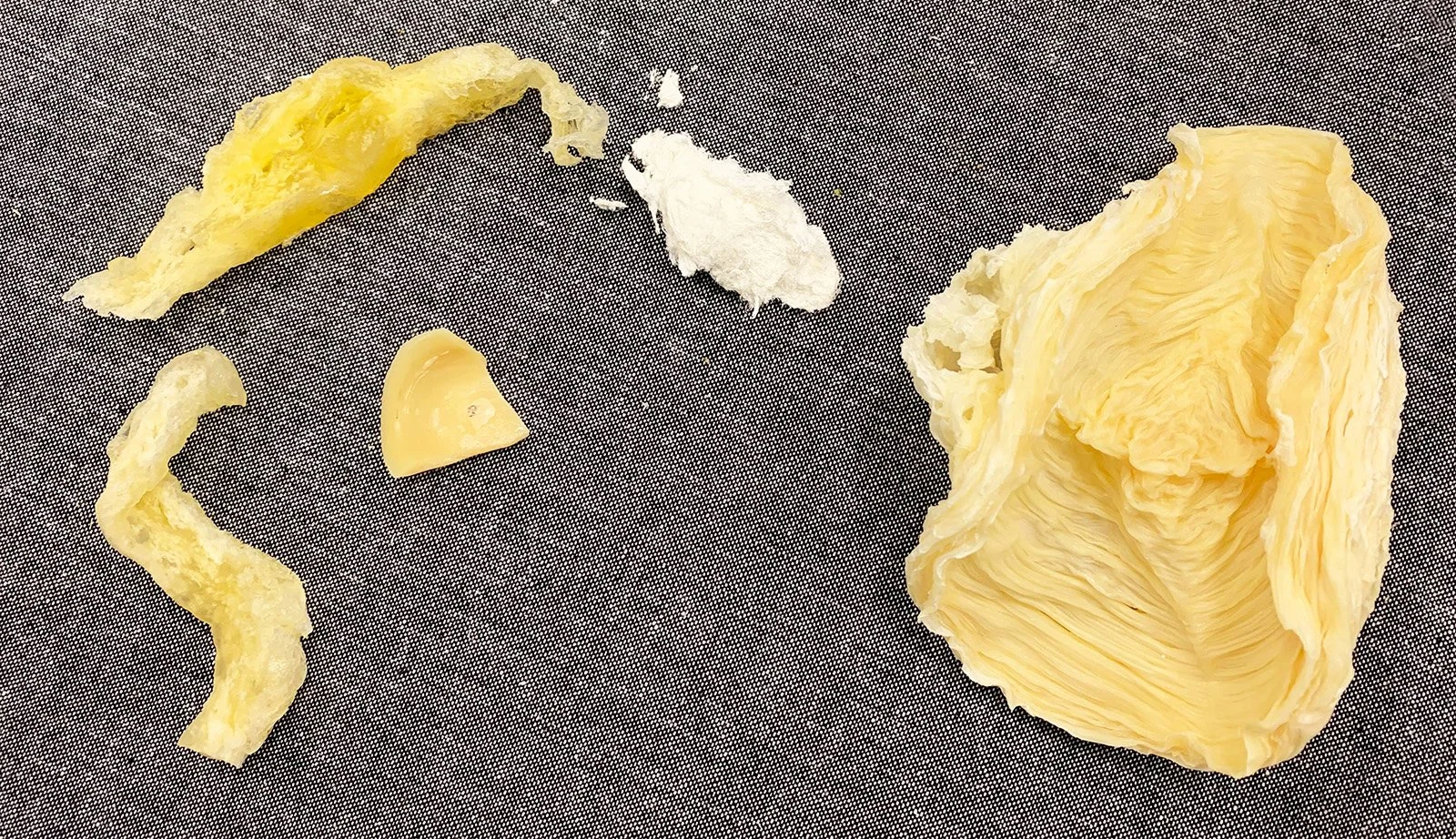2021, Sludge Bioplastics
What Matter_s 2.0 was an initiative by Form/Design Center in Malmö, where six designers and six manufacturers were paired to develop new sustainable materials using industrial residue as a starting point. The goal was to explore
new ways of thinking, developing, and commercializing through material innovation.
In collaboration with Kiviks Musteri, Stina Henriksson and I developed Sludge Bioplastics — a concept that transforms wastewater sludge from the cider factory’s treatment facility into fully biodegradable bioplastics. From this plastic we designed cultivation planters and plant clips.
What matter_s 2.0
-
Each year, Kiviks Musteri produces over 780 tonnes of sludge in its wastewater system — a costly byproduct with no established reuse. Our project reimagined this waste as a resource, working with two local biotechnology companies, Promiko and Bioextrax, to extract biopolymers from the sludge.
-
The polymer produced, PHBV, is a type of bioplastic that is entirely biodegradable — even in cold marine environments, and breaks down without generating microplastics. Unlike conventional bioplastics made from agricultural crops such as corn or sugarcane, this material is derived from waste streams rather than cultivated biomass, conserving both land and resources.
The process begins with bacteria in the sludge, which are fed to produce polymer granules within their cells. These polymers are then extracted using a combination of other bacteria and enzymes.
-
Inspired by Kivik’s apple orchards, Stina and I designed a series of bioplastic cultivation tools, including planters and plant clips. The products are meant to be durable, yet harmless if they break or decompose outdoors. The closed-loop concept follows a cycle — from fruit to juice, to sludge, to bioplastics, and back to soil.
The project was exhibited at Form/Design Center as part of the show Metabolic Processes for Leftovers, and in Kleipeda, Lithuania. It was also nominated for two international awards — Beyond Plastics 2021 and Rossana Orlandi’s Guiltless Plastic Award — and later exhibited at the Leonardo da Vinci Museum of Technology during Milan Design Week 2021.

